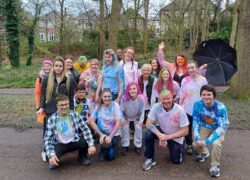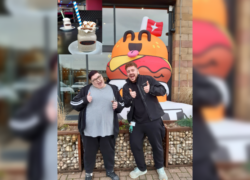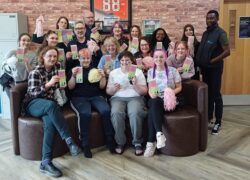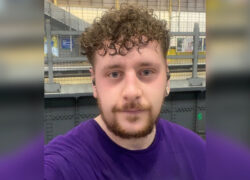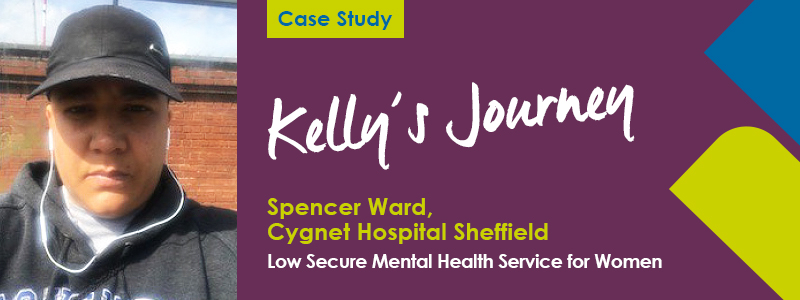
Kelly’s history
Kelly’s journey started when she had a traumatic incident as a child when her father died suddenly. As a teenager she mixed with the wrong crowd and became part of a gang as well as using drugs and missing school. She had some other negative experiences which left her with traumatic memories and a real lack of trust in others. She got into trouble with the police and her contact with the criminal justice system and mental health services started from there.
Kelly did what she felt she had to do in order to stay one step ahead but this led committing to a robbery which gained her an IPP Indeterminate Sentence of Imprisonment for Public Protection (IPP), a sentence given to people when there is deemed to be a risk to others which requires long term management.
Kelly ended up moving between prison and secure services as her harm to herself and others would spike when she was about to move on or when she felt controlled by others. Kelly only really knew how to interact with others through material and monetary exchanges and so often had further restrictions due to anti-social behaviour.
When Kelly came to us
Kelly stepped down from a Medium Secure unit when she arrived at Cygnet Hospital Sheffield. She was polite and very charismatic but she found it hard to trust others and found rules and regulations difficult to follow. Kelly had not had any incidents of self-harm or violence for some time and she had managed to gain some leave but this had been stifled by the coronavirus pandemic. She sometimes got into verbal disagreements with staff members as she held on to trauma relating to feeling out of control, but she could often reflect on these incidents afterwards. However as she got to know the team these behaviours reduced.
Kelly’s care
Due to Kelly making so much progress over the years, a positive risk taking approach was taken. She was encouraged to take positive risks fairly quickly in regards to leave and building up her independence on the ward.
Kelly had psychology and named nurse sessions every week which helped to build strong relationships with her team. She began to trust key people and started to talk more about how she was feeling and would utilise the support of others when she had down days.
Kelly used her psychology sessions to check in and reflect on her relationships which, in time, she began to do with a lot more ease. She progressed onto self-administering medication and was introduced to the Community Forensic Team to support her to look forwards in her journey. She managed to build relationships with them too, including a male key worker which is significant for Kelly.
Her community team found Kelly a flat in a nice area for when she was ready to transition into the community which was decorated and just the right size for her. Occupational Therapy gave her a paid job on the ward and helped her to secure a volunteering placement walking dogs, Kelly’s dream job, which had huge therapeutic benefit. She continues to attend twice a week to look after, feed, and walk lots of dogs, including puppies. She has also been offered paid work with the kennels which she can start in the summer.
Kelly today
Kelly was initially supported by the team to visit her flat daily, unescorted for long periods, often overnight. She was recently discharged from her IPP and now lives in her flat in the community without previous restrictions. She has built very positive relationships with the team and regularly talks about how she is feeling, without prompting or encouragement.
She has a stable and rewarding relationship with her mum who she also sees regularly and is finally able to spend time with her mum after many years of long distance contact. Kelly has rebuilt links with other family members, many of whom she had not seen for many years if at all. She has now hosted some of her family at her flat and has loved every minute of it. Kelly has formed close relationships with some of the peers on the ward and is considered a role model by others.
One step Kelly has been really proud of is managing her own medication every day. She now takes this herself, without prompting. She said that considering she used to misuse and trade her medication in the past this is a huge milestone for her and she is really proud of this. Kelly has made incredible progress during her time at Cygnet, and we wish her all the best for the future.
